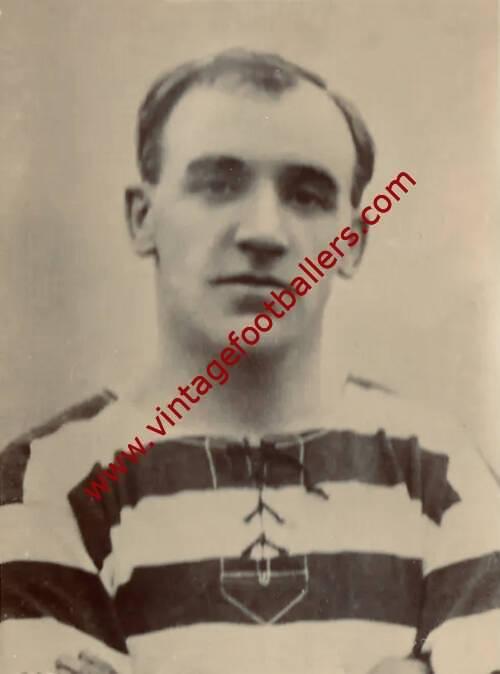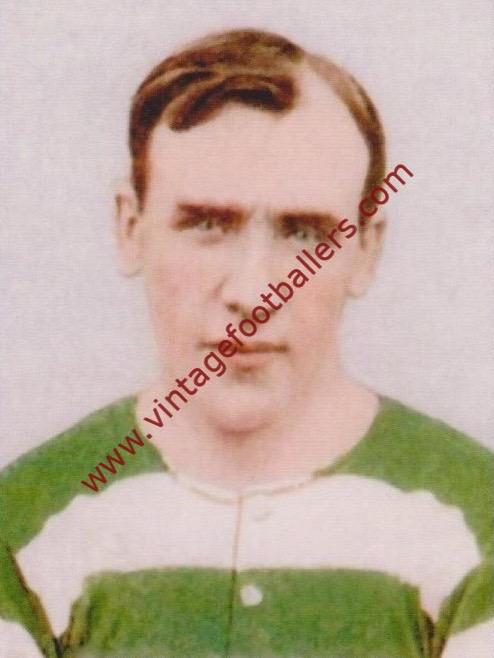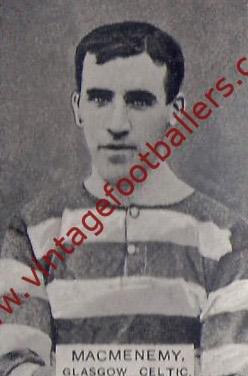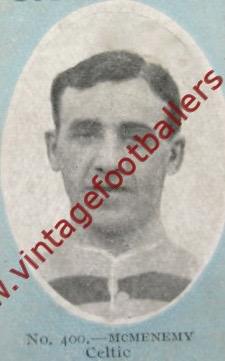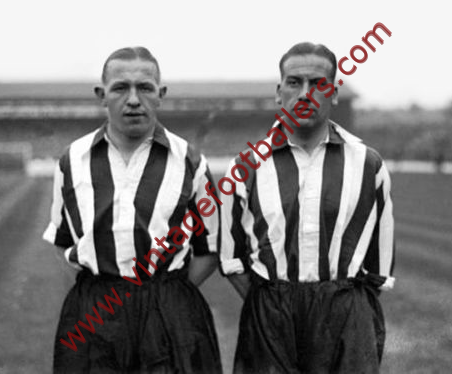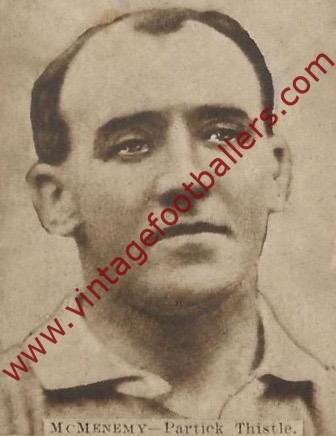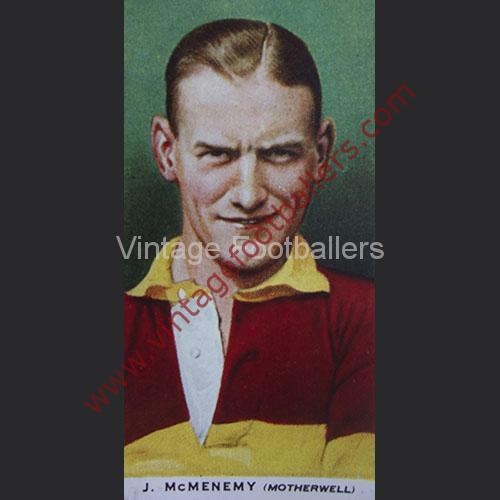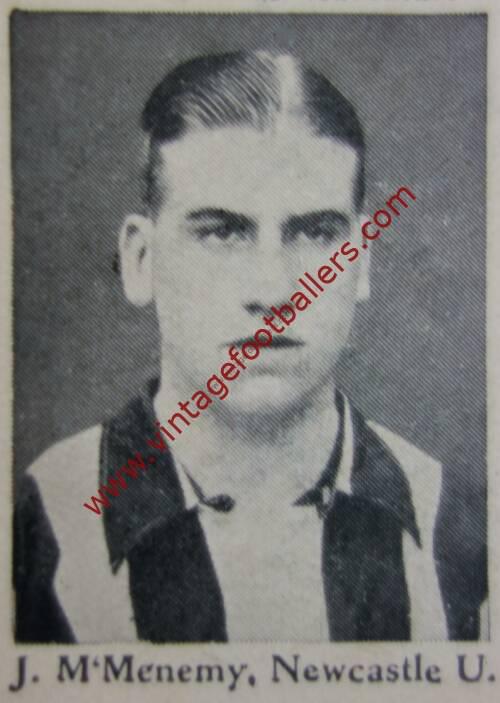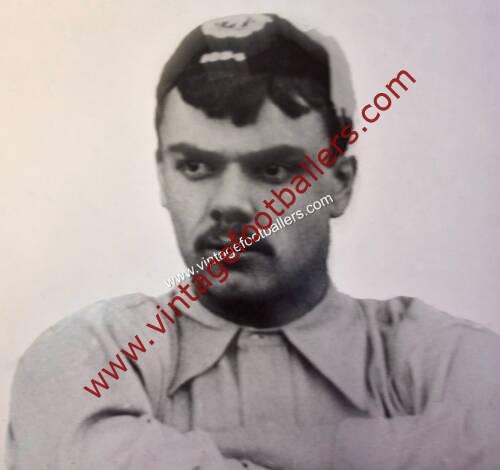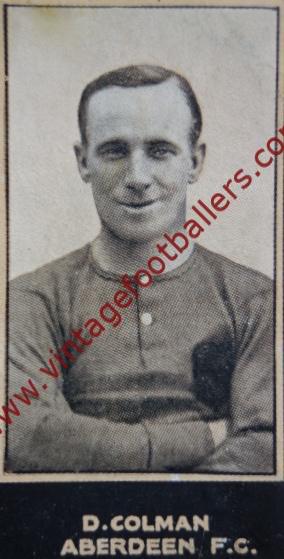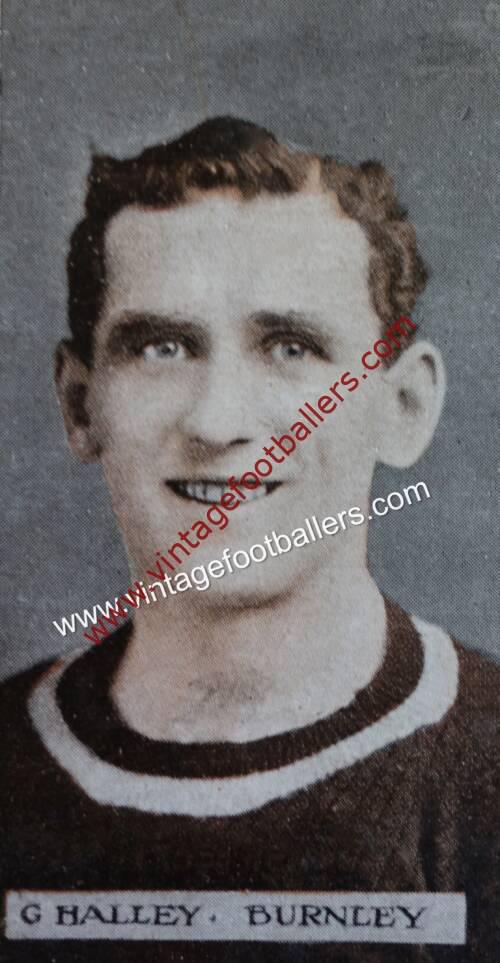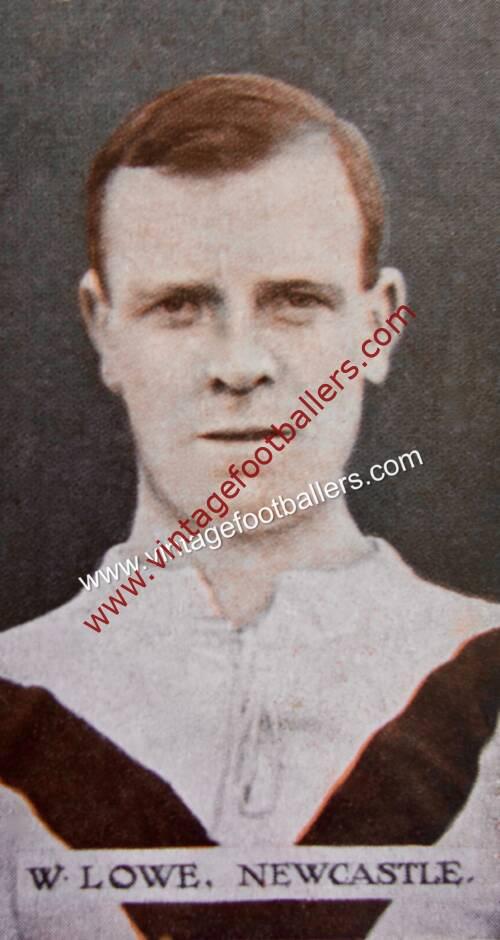Please choose your photo size from the drop down menu below.
If you wish your photo to be framed please select Yes.
Note: 16″x 20″not available in a frame.
Images can also be added to accessories. To order please follow these links
£8.95 – £49.95
Please choose your photo size from the drop down menu below.
If you wish your photo to be framed please select Yes.
Note: 16″x 20″not available in a frame.
Images can also be added to accessories. To order please follow these links
Rutherglen, Lanarkshire born inside left Jimmy McMenemy ranks among the greatest of Celtic figures. He joined Celtic from Rutherglen Glencairn in June 1902 he made a scoring debut in a 3-0 league victory at Port Glasgow on November 22nd. It was an impressive first outing for the inside-left but few could have guessed that this match was the start of a special relationship which would last for the best part of two decades. His longevity was exceptional, overshadowed only by that of colleagues’ Willie Maley as manager in his 43 year stint and Alec McNair who played even more matches. An abundantly talented footballer with the vision and intelligence to dictate a game McMeneny was nicknamed ‘Napoleon’ and he marshalled the Celtic forward line which bossed Scottish football for a generation. He was a key part of the Celtic team that won six league titles in a row between season 1903-04 and season 1909-10. Grand nicknames were not uncommon especially if they were bestowed by Willie Maley. Quick feet, a good header of the ball and an excellent passer McMenemy was a major player in the Celtic sides which won 11 championships in his time at the club. He possessed an astute tactical awareness which when coupled with his talent with the ball allowed him to control and dictate games. He was also a calm and collected figure, able to keep his head in the heat of the most ferocious battle.
His intelligent scheming led to the downfall of rivals on a weekly basis as Willie Maley’s Celtic developed into an all conquering football superpower. McMenemy’s combination of brain and brawn made him the most formidable of opponent for any defence. This was typified in the match against Rangers on New Year’s Day 1914 when McMenemy cleverly dribbled around five men before smashing the ball high into the goal. It was a moment that clearly illustrated his sublime talent. Celtic were to be peerless throughout much of the War, and McMenemy was a great part of that, keeping spirits high on the homefront as was requested by the authorities. He managed to make a name with Celtic in two different eras, first was the magnificent era in the first decade of the 1900’s which saw Celtic win six league titles in a row, in a side with very fine footballers. Then in the 1910’s again with another great side despite first being thought to be on his way out (he was far from it). He scored 5 goals in 12 Scottish international appearances between 1905 and 1920, representing The Scottish League 13 times, scoring twice, between 1909 and 1920.
McMenemy left Celtic for a season having retired from the game. Not fully clear why but likely age, wear and tear had taken its toll. Due to his knees and age, rather than join the war he was instead stationed in munitions factories in Ayr and then Glasgow. Napoleon returned to the Bhoys the next summer to a rapturous welcome from fans and he stayed at Parkhead until June 1920. His motivation had returned and the old ‘knees’ seemed to have recovered. Some may query why he returned, but it’s a wish that most footballers after the end of their careers could only dream about, to have that one more chance. This was to be a swansong as unlikely there was to be a further opportunity again at his age.
To the pleasant surprise of many, it was to be an Indian Summer for him as one author wrote. Celtic regained some of their old spirit and fought to win the League, something they had monopolised for much of the past twenty years. While with Celtic he played 515 times and scored 168 goals in winning 11 Championships and 6 Scottish Cups. For McMenemy, there was one last bit of glory. Having moved to Partick Thistle he continued to play and helped the club to win their one and only Scottish Cup, defeating Rangers in the 1921 Final. It was a glorious way to end his playing days (albeit he carried on for a short while longer). The incredible part is that he was now well over 40. He later became trainer and Assistant Manager to Willie Maley from 1934 to 1940. During this period, Celtic went through what can be described as Celtic’s last great period for twenty years (even though the success was brief). Possibly it signalled the closing chapter of Celtic’s first 50 years of success, although the club had been underachieving for much of the time since McMenemy had hung up his boots.
As for the McMenemy family, his son John won a Scottish Cup medal for Celtic in 1927 and later played for Motherwell, Harry played for Newcastle United and of course Laurie McMenemy, the former manager of Southampton and many other teams, is the great-nephew of Napoleon.
| Weight | N/A |
|---|
